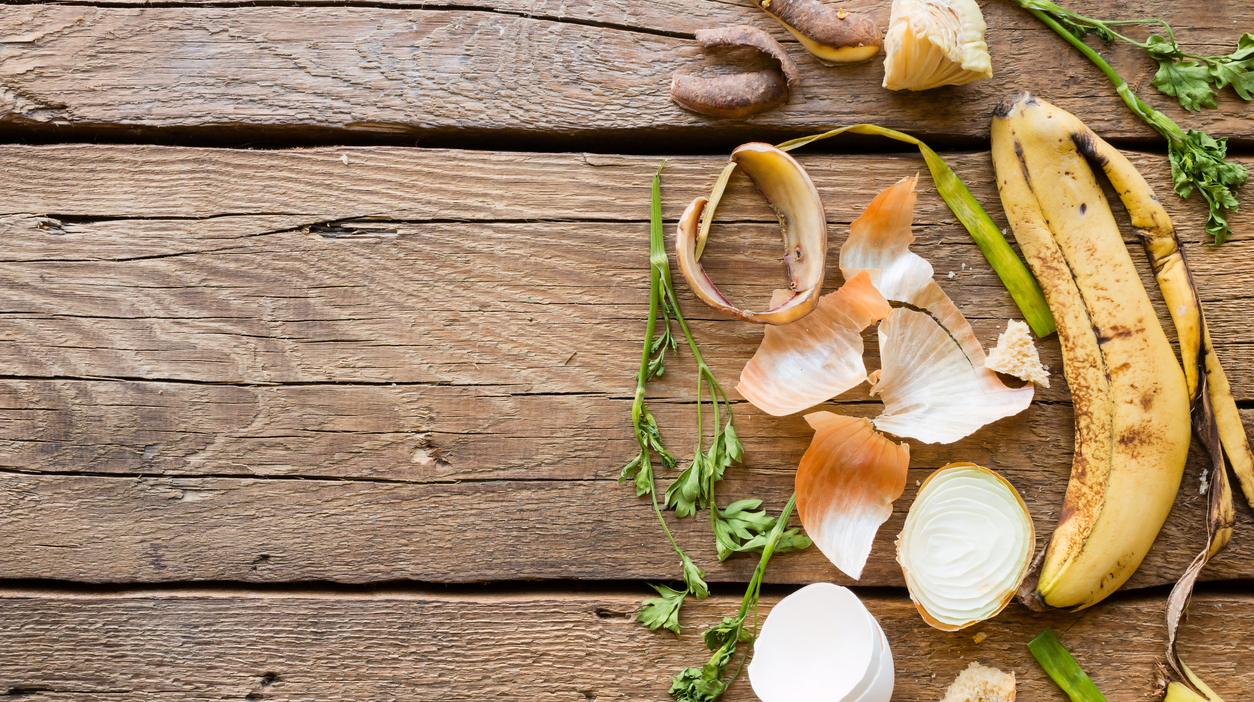What Are The Small Steps You Take To Combat food Waste?
We may receive a commission on purchases made from links.
Despite the slew of headlines, documentaries, and even a United Nations initiative aiming at its reduction, food waste is predicted to rise by one third globally by 2030. That's according to a new, depressing report from Boston Consulting Group, which found that if current trends continue, worldwide food waste will reach 2.1 billion tons annually within 12 years.
Of course, using up your garden scraps to make pesto or eating leftovers instead of chucking them isn't going to solve the problem entirely. Food waste is endemic in the global food system and chain of supply, from farmers to grocers to restaurants to households. Putting all the onus for saving the planet on the backs of you, me, and our families isn't going to eliminate those 2.1 billion tons.
But hey, we can do our part, right?
We at The Takeout are but a small, humble group, but we do make an effort. However minute the overall effect, there are small ways we try to reduce the food that gets thrown in our trash. Mostly, though, we want this to be a conversation starter—to hear from you, Takeout commenteriat—about your food-saving tips. We'd love it if you could please deposit those in the comments below. Here are ours.
Stocking a pantry
In my younger, less organized days, I never had much more food on hand than what I planned to use in the next 48 hours. That meant I'd end up throwing out excess ingredients that I couldn't turn into a second dish, because I didn't have eggs or rice or pasta sauce or whatever in my cupboard. Now, I try to keep pantry staples on hand to make the following: stir-fry, pasta with jarred sauce, omelets. Those three dishes are blank canvases for all sorts of leftovers. Veggies, cheese, or herbs? Make an omelet. Half a steak from the day before? Stir-fry. A piece of roast chicken? Put it on pasta. Because I have a backyard now, I've also started composting (it's not as messy or difficult as I initially, and you don't even need the expensive barrel-tumbler things). [Kate Bernot]
Don’t live and die by the “best-by date”
One bit of knowledge that's changed how I eat is realizing the date on most food labels aren't regulated by any federal authority (except for baby formula). Often, we conflate expiration dates with sell-by dates with best-by dates, which is a date set by the manufacturer for the food's "peak flavor"—whatever that means. This isn't to say, go ahead and drink that milk three months past the date on the label. It's the awareness that those dates aren't all expiration dates, and that if a box of Wheaties says best-by September 1 and it's September 3, you don't necessarily need to chuck it in the bin. [Kevin Pang]
I’m anti-produce drawer
A big part of preventing waste is, for me, knowing my own bad habits—not overestimating my pizza needs, not buying eggplant I definitely won't have time to cook, and so on. The biggest one of these is simple: anytime I put produce in refrigerator crisper drawers, I instantly forget it's there. Months later, Bunnicula-lookin' celery comes out, and I have melty carrot water to deal with. So, no more crisper drawers for me. Accepting that my veggies just have to go on a shelf helped a lot. If I can see it, I'm way more likely to eat it. [Allison Shoemaker]
Labels are your friend
I'm one of those people who worries about getting food poisoning a lot, so I've thrown out far too many tubs of leftovers because I couldn't remember how long they've been in there. With a fridge, probably wise. With a freezer, totally wasteful. Labelling things with masking tape so that I know that a giant vat of soup been in there for two months, not two years, has greatly increased the likelihood that I'll actually eat the things I freeze. [Allison Shoemaker]
Stock up on stock
This isn't so much helping reduce food waste, it's taking what would otherwise be food waste and wringing it—quite literally—to the last drop. We make stock all. The. Time. We'll throw the carcass of a supermarket rotisserie chicken along with carrot peels, the bottom end of celery stalks, even lettuce, and the last scoop from a can of tomato paste. A stock is incredibly forgiving to what "garbage" you throw in the pot. For longtime readers of this site, homemade stock likely isn't a revolutionary concept, but its ease to make and taste difference makes me wonder why we even used the boxed stuff. [Kevin Pang]
